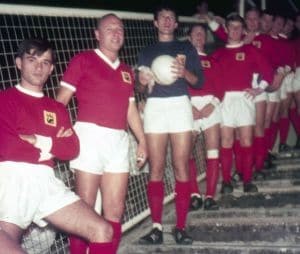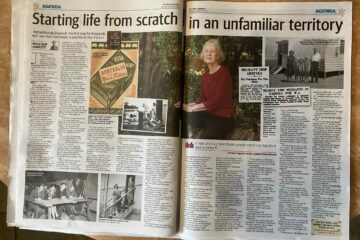Chris Wissink is a notable figure in Australian soccer, particularly within the Dutch-Australian community. Born in 1946 in Eindhoven, Netherlands, he emigrated with his family to Australia in 1954 and became a distinguished goalkeeper in Western Australia’s soccer scene.
Club Career and Achievements

Wissink’s soccer career in Australia was marked by his exceptional goalkeeping skills and contributions to several clubs. He is best known for his time with Morley Windmills, a club with strong Dutch heritage, where he played a pivotal role in their success. In 1974, he was instrumental in the team’s victory in the D’Orsogna Cup, earning a medal for his performance. Beyond Morley Windmills, Wissink also played for other prominent clubs, including Azzurri, Cracovia, Bayswater, Tricolore, and Athena. Throughout his career, he amassed an impressive collection of titles: three First Division championships, five Night Series titles, two D’Orsogna Cups, and one Top Four Cup.
State Representation and International Exposure
Wissink’s talents extended to the state level, where he represented Western Australia in various competitions. Notably, he was part of the squad that participated in the 1968 Merdeka Tournament in Malaysia, a prestigious international competition. His inclusion in this tournament underscored his status as one of the top goalkeepers in the region and got the nickname Octopus Wissink.
Recognition and Legacy
In recognition of his significant contributions to soccer in Western Australia, Chris Wissink was inducted into the Football Hall of Fame Western Australia in 2005. This honor reflects his impact on the sport and his role in promoting soccer within the Dutch-Australian community.
Dutch-Australian Heritage
Wissink’s journey from the Netherlands to Australia and his subsequent soccer career exemplify the broader narrative of Dutch migration and integration into Australian society. His involvement with clubs like Morley Windmills highlights the cultural connections maintained by Dutch immigrants through sports. The Dutch-Australian community has a rich history of contributing to various aspects of Australian life, including sports, and Wissink’s story is a testament to this legacy.
Chris Wissink’s career serves as an inspiring example of how sports can bridge cultures and foster community integration. His achievements continue to be celebrated within both the soccer community and the Dutch-Australian diaspora.
See also: Clogball


